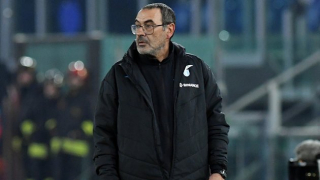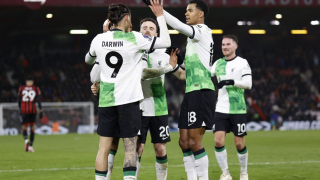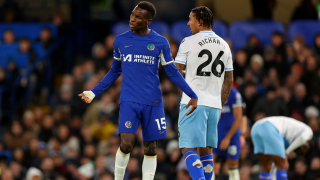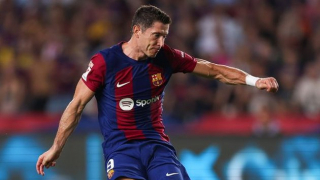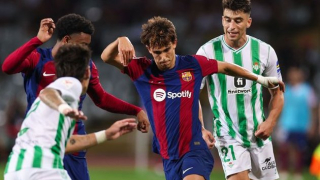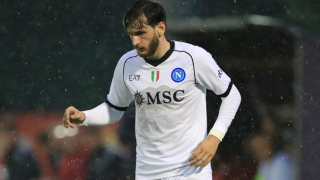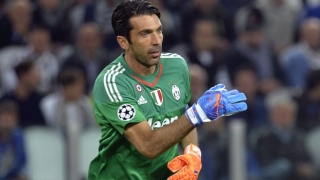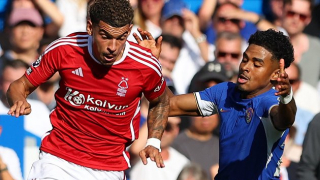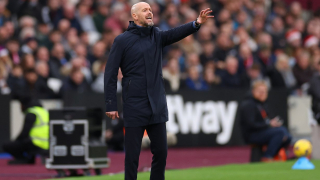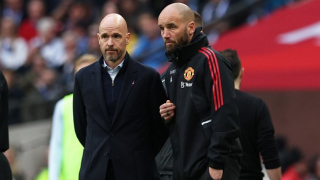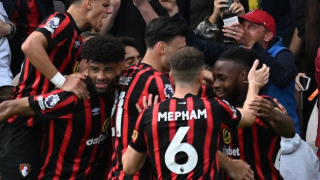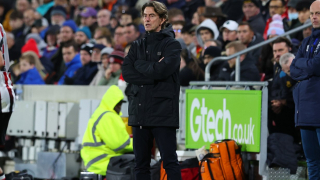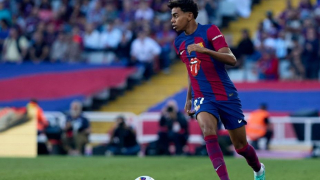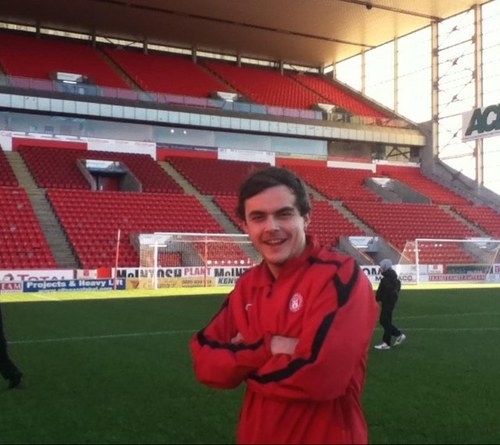When the phone rings, a sense of nervousness creeps in. This isn't any old person I'm about to speak with. It's Archie Knox. The man who was an assistant to Sir Alex Ferguson at Aberdeen and Manchester United, and Walter Smith during the nine-in-a-row era at Rangers.
Hello? A grumbling Scottish accent extends their welcome. I introduce myself, remembering to mention my 86-year-old grandmother who lives on the outskirts of Glasgow. This seems to ease the conversation, or more precisely, ease my worries. You see, I had the preconceived notion that Mr. Knox was a bit of a hard man, and you can't really blame me.
In his time at Pittodrie, Knox reflects in his book - The School of Hard Knox: The Autobiography of Archie Knox - about the unorthodox techniques he used to discipline his young players.
"I did have a baseball bat and I would sometimes go into the bootroom and let fly at a few of them," recalls Knox.
"It was never too serious and you have to remember these were very different times in all sorts of ways."
But Knox assures me that the bat was only used momentarily in his 37-year long career in football management.
"You had to adapt as you went along. In Aberdeen, it was with young players and I was in control," he chuckles.
"It wouldn't have been baseball bats at Manchester United."
Knox reveals that he only had to discipline the United players once, which is surprising given the sizeable egos you would expect in the dressing room. He attributes this to his unwavering disciplinarian attitude.
"If you give in at any time, then that's you, you're finished, you won't recover from that," said Knox. "So I never did that at any time in regards to what happened at training and discipline."
Unlike the stereotypical number two - one who stays quiet and in the shadows - Knox holds the reputation of being a stern and fiery assistant.
But as former Manchester United skipper Bryan Robson describes, Knox was more than just an authoritative figure.
United's longest serving captain recalls a time when Knox, preparing the team for their 1991 European Cup Winners Cup quarter-final against Montpellier, caught wind of the opposition sneaking in to watch United train at their former headquarters, the Cliff.
To confuse their eavesdropping counterparts, instead of producing a football in their usual game of keep-off, Knox pulled out a rugby ball.
"It was bouncing everywhere and the boys were in stitches," said Robson. "That's what Archie was like – always great fun to be around. He was deadly serious when he needed to be, but also light-hearted and fun."
After helping Aberdeen claim two Scottish league titles and a memorable European Cup Winners Cup triumph - over Real Madrid nonetheless - Knox and Ferguson entered unchartered and murky waters when they made the move south.
The Manchester United of 1986 was a far cry from the club that Sir Alex would come to build. When Ferguson and Knox arrived at Old Trafford, the club had not won the league in 19 years and their rivals Liverpool had come to not only dominate England in those years, but the entire continent.
The talent pools of England's north-west were being picked apart by the Reds and United's neighbours, Manchester City. Ferguson and Knox got to work right away, putting up a map inside Sir Alex's office and distributing sections of the Liverpool and Manchester areas to their various scouts for which to focus on. If any of their rival clubs in those areas - City, Liverpool and Everton - picked up notable players, the scouts had Fergie and Knox to answer to.
Asked if taking over from Liverpool was a key motivation for Ferguson upon his arrival in Manchester, Knox replied fervently: "There's no question about that.
"There was never any doubt in his head; first of all, you know, the youth thing with Manchester City taking all the young players at that time and managing to recruit them.
"It was a case of saying right, we've got to put a stop to that, we've got to get that side of it right and along with that, we improved the first team as much as we possibly could.
"But once Alex Ferguson got Manchester United moving, that was a roller coaster that wasn't going to be stopped."
Knox and Ferguson's undeniable confidence that things would pan out at United is rather telling.
It's common knowledge that they struggled in the early years. In Ferguson's first three seasons, United finished 11th, 2nd and 11th and failed to win a single trophy.
Such was the struggle that a common story has permeated through United folklore for years. It has been said that Mark Robins' winner against Nottingham Forest in the third round of the FA Cup in 1990 saved Ferguson his job.
The Red Devils famously went on a run in the competition, featuring in replays in both the semi final and final, which they won against Crystal Palace. But Knox tells a different story altogether.
"The Robins story wasn't true at all. I can remember coming off the bus at the City Ground and Alex saying to me that Martin Edwards had said to him that 'no matter what happens today, you will still be our manager'," said Knox.
"I think people recognised what was going on and the steps that were being taken to get Manchester United back to the top again."
Knox and Ferguson's relentless work in re-establishing the local scouting network was slowly bearing fruit in those formative years, as a youth team began to formulate that would eventually become known as the Class of 92'.
Names like Ryan Giggs, the Neville brothers, Nicky Butt, Paul Scholes and David Beckham would all sign their first contracts before Knox left the club in 1991.
And although Knox never lifted the Premier League trophy, as Giggs accurately states, United may never have become the most successful club in England were it not for his tireless work.
"He [Knox] was part of a great time in Manchester United's history," said Giggs.
"When Sir Alex was making the changes that meant we would break through and win the club's first league title in 26 years in 1993. He helped the club on the road to what it has become today."
Knox's next challenge was back in his native Scotland, where he would become assistant to his close friend, and former Dundee United teammate, Smith.
Having taken over at Ibrox in April, Smith - who was previously an assistant to Graeme Souness - was thrust into a serious title challenge, which would soon become Rangers' third-in-a-row.
One player that Knox speaks fondly of from his time in Glasgow is Paul Gascoigne. The enigmatic and troubled star arrived in Scotland from Lazio in 1994, and Knox was immediately tasked with keeping his often erratic behaviour in line.
Plagued with alcoholism throughout and after his career, Gascoigne had an earlier chance to work with Knox at Manchester United. The former England international was with his boyhood club Newcastle United at the time before he eventually decided to join Tottenham Hotspur.
With a hint of sadness, Knox reflects on what might have been had 'Gazza' - as he is affectionately known - signed for the Red Devils.
"I could remember going away on holiday one year and Alex [Ferguson] had phoned me and said that's us, we've got Gascoigne signed," Knox said.
"Then the next day there was something had gone with Spurs and Tottenham promised his family this and that, and in that time Man Utd couldn't do that.
"So he signed for Tottenham, you know maybe in hindsight if Gaz had come under the control of Sir Alex then, it wouldn't have affected his talent in any way, but it might have affected the way Paul went about the rest of his life, we might have of been able to keep him up more under control than they did at Tottenham, but you never know."
Gascoigne became an integral part of Rangers equalling arch-rival Celtic's record of nine titles-in-a-row. The Teddy Bears failed to eclipse that mark in 1997/98 and the streak was over, and so too was Smith and Knox's tenure at Ibrox.
Knox would spend the next four years with Smith at Everton, before spending the next fifteen years of his career in two different spells with the Scotland national team, Livingston, Motherwell, as well as stints down south with Millwall and Coventry.
Rather fittingly, his last job as an assistant manager was at Aberdeen, alongside Craig Brown, with whom he'd worked under at Motherwell and Scotland.
As a man who now observes the game he had spent the majority of his life being consumed by, Knox knows that football has changed vastly to his day. With a breadth of knowledge so far and wide that you'd find it hard for it all to fit inside his head, picking Knox's brain about some of the issues that plague football today is fascinating.
He blames the amount of foreign players playing in the Premier League as the single biggest reason for the England national team's failure to be successful, stating 'it will not be possible' for the Three Lions to compete at the World Cup or European Championships until something changes - but he insists it won't happen because of the money involved.
He passionately describes about how the sheltered lives of kids in the UK, and the politically correct society that surrounds them, is ruining their ability to develop their skills on the streets.
"They don't devote enough time to playing football," he said. "Way back, I know it's all yesterday news from dinosaurs like me, but it's certainly the case.
"They're on iPads, computers, phones and they spend so much time on that and you never see kids on the street kicking a ball. Now that's where all the top players learned their trade."
At this point, what became a glaringly obvious question, as I'm sure it did for you, was why had Knox not become a manager on his own?
Well, there was two spells being the top man - at Forfar and Dundee - but the latter ended in 1986 when he was lured back to his second spell with Aberdeen.
He credits his hubris and was also honest enough to admit that the sense of fear that came from being in the top job drove him back to a reunion with Sir Alex.
"Dundee was fine, but they were always a selling club," Knox said. "So immediately you drop down from where you've taken them up too, then somewhere along the line somebody's going to say, 'well they're not as good as last season so we need to try and get another manager'.
"[It] was fine but I missed being associated with success. It might have been an ego thing on my part."
Be that as it may, where as some might find the exercise of setting up cones for drills and marking out pitches for practice matches as mundane, Knox revelled in the challenge of conducting his own training sessions and preparing the team for their next match.
He says it was being on the training pitch and watching young players breakthrough into first team that gave him "all the satisfaction [he] needed in football".
His passion enabled him to become the consummate number two, one who arguably the greatest manager of all time called upon to prepare his troops. But it is loyalty, above all else, that Knox identifies as the key to being an assistant.
"You can have your arguments and different points of view," he said. "Guys like Sir Alex Ferguson and Walter Smith certainly wouldn't have had it any other way.
"So you gave your point of view and that was it, and whatever the decision the manager made you backed it to the hill."
Although he hasn't been visible on the sidelines since 2013, Knox still keeps an eye on the young talent coming through at Old Trafford, most notably Marcus Rashford, who Knox says will only grow once he has "setbacks".
As I'm listening, I can't help but think that a boot room and flying baseball bat is what Knox really has in mind.
Archie Knox is currently promoting his book, The School of Hard Knox: The Autobiography of Archie Knox, which chronicles the life and career of the man who assisted Sir Alex Ferguson at Manchester United and Aberdeen, Walter Smith during the nine-in-a-row era at Rangers, and Craig Brown for Scotland, amongst many others. The 70-year-old has seen it all and is one of the most respected and admired coaches in football.

